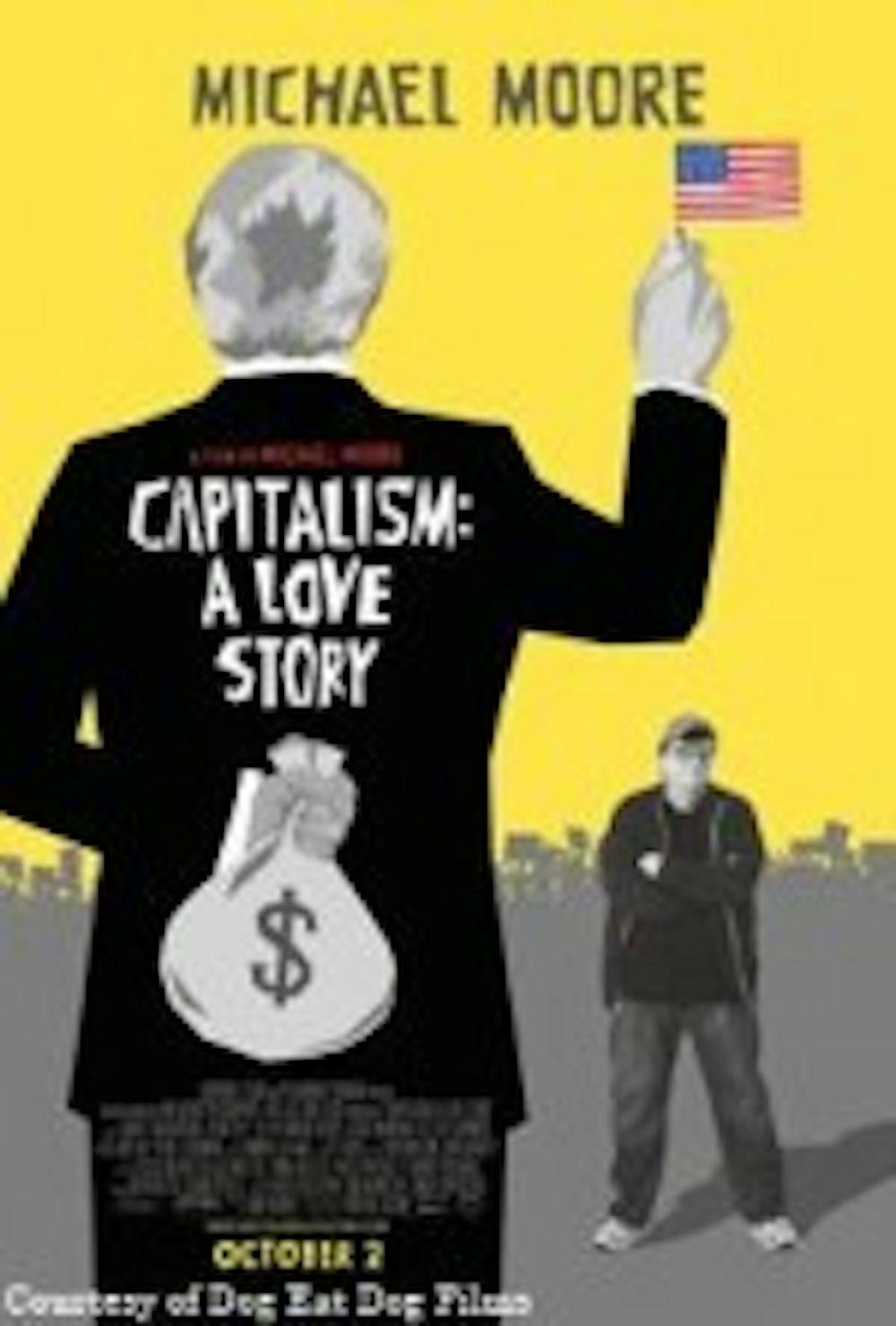Michael Moore is at it again.
Moore hinted at his hatred of capitalism in past films, but that hatred now stands front and center in Capitalism: A Love Story.
Moore has succeeded in portraying the Wall Street atrocities against average Americans in an entertaining and informative way. His documentary could not have come at a more opportune time.
Moore has taken it upon himself to be the voice of the people in the midst of an economic crisis. There are plenty of gasps to be had from the information that Moore reveals.
Moore has been accused of a leftist bias for his work on such films as Fahrenheit 9/11.While he does not try to hide it in this film, he certainly does not take it easy on either side of the political spectrum.
Hate him or love him, Moore has always aimed to be informative. Capitalism is most successful when it shows examples of corporate wrongdoing. Moore has a field day tackling the reasons why corporate greed led America to its current situation.
While Capitalism works well as a list of reasons why America's current economic system is evil, it is less successful at pinpointing an alternative.
It seems that Moore has bought into his reputation. Moments where Moore aims to cause a scene on Wall Street seem self-aware, but are still somewhat amusing. One can only wonder how much longer these stunts will remain effective.
Moore is smart enough to save these moments for later in the film. He is also smart enough to keep himself out of many of the scenes. He realized the most important aspect of this film was average Americans, and for the most part, he stands aside as they tell their story.
The tales told by the 'Average Joes' of America are tear jerking. Audiences will sit in shock as Moore exposes stories of huge corporations buying life insurance policies on store workers. An especially powerful story involves a man who was proud to work at Wal-Mart until he found out about the policy taken out on his wife.
Moore set out to expose corporations and to convince Americans that capitalism is an evil that needs to be removed in order for the country to remain great. This is a lofty ambition, and on this front, Moore is not entirely convincing.
Still, he offers enough information and anecdotes to prove that the current economic climate needs some sort of reworking.
To achieve this, Moore uses his patented blend of fact and humor. A hilarious scene in which a dubbed Jesus discusses the economy is one of the many laugh-out-loud moments.
Capitalism also seems to be somewhat of a personal film for Moore. He attempts to bring his work full circle by including scenes from his debut Roger and Me.
In many ways, this film seems like a sequel to Roger and Me. In that film, Moore aimed to expose the evils of corporations in his hometown. This time, he aims to expose these evils on a countrywide scale.
Capitalism could have been more effective if it put any responsibility on the American people. It is widely acknowledged that corporate greed led to the economic collapse. Moore could have at least taken a moment to talk about what the average citizens did to facilitate this collapse.
While Capitalism could have offered more suggestions, it is still extremely relevant. It offers insights into corporate and government policies that have changed America for the worse. Those that see this movie may actually be invigorated to make a change.
Moore must have many ideas for how to change America – just don't expect this film to offer any of them.
E-mail: arts@ubspectrum.com





